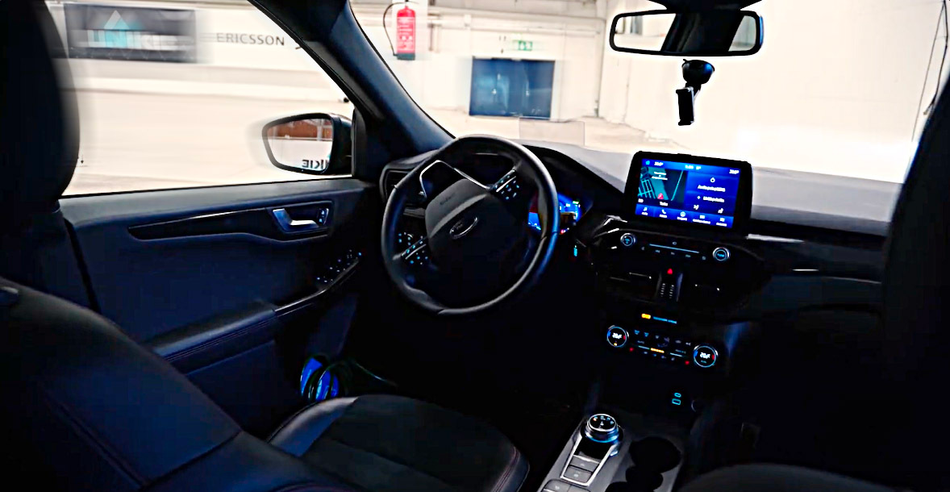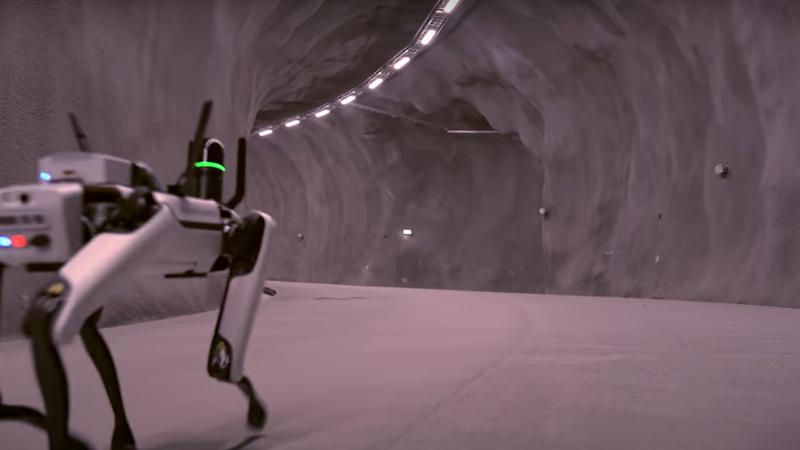Exploring the Future of Navigation and Automation with Immersal's Visual Positioning System
Immersal's Visual Positioning System (VPS) revolutionizes robotics and autonomous mobility, enhancing precision and fostering innovations in smart urban development and transportation through its partnership with Unikie.
Introduction
In this blog post, we delve into the dynamic and innovative realm of Immersal's Visual Positioning System (VPS), a groundbreaking technology reshaping various industries, with a special focus on robotics, automation, and the burgeoning field of autonomous mobility and smart spaces. Our exploration will highlight how Immersal's VPS is revolutionizing robotics, particularly for those robots lacking conventional navigation systems like LiDAR, enabling them to interact with and navigate their environments with unprecedented precision and efficiency.
We will also delve into the transformative potential of VPS in the domain of autonomous vehicles, exploring how this technology is not just enhancing existing systems but also pioneering new pathways in automation and mobility. Additionally, we will examine the significant collaboration between Immersal and Unikie, a union that epitomizes the synergy between advanced spatial computing and edge-driven autonomous solutions. This partnership is a beacon in the international field of autonomous mobility and smart spaces, showcasing how integrated technologies can lead to smarter, more efficient urban landscapes and transportation systems.
Join us as we navigate through these exciting developments, offering insights into a future where Immersal's VPS technology is at the heart of innovative solutions across multiple sectors, driving progress and redefining the boundaries of what is possible in our increasingly connected world.
The Role of VPS in Robotics
In the realm of robotics, the ability to accurately perceive and interact with the environment is paramount. Traditionally, robots have relied on technologies like LiDAR (Light Detection and Ranging) for navigation and mapping. However, LiDAR systems can be costly and complex, limiting their accessibility and versatility in various applications. This is where Immersal's VPS technology comes into play, offering a more cost-effective and flexible solution for spatial awareness and navigation.
VPS technology enables robots to navigate and operate in complex environments without the need for expensive hardware. By using cameras, robots equipped with Immersal's VPS can understand their surroundings with a high degree of accuracy. This capability is particularly beneficial in industries where environmental conditions are constantly changing or where installing additional infrastructure for navigation is impractical.
In manufacturing, robots with VPS navigate autonomously, swiftly adapting to changing environments, thus boosting efficiency and reducing reprogramming needs. These robots enhance inventory management in logistics and warehousing by precisely navigating and efficiently handling materials. Additionally, in healthcare and hospitality, VPS-enabled robots improve interactions in dynamic settings, aiding in patient care and customer service, demonstrating their versatility and responsiveness in diverse roles.
What will you build?
Whether you're building an AR experience for a large commercial space, a factory, or an industrial setting, or even if you'd just like to create an AR app for fun, Immersal is the way to do it.
Immersal has released its SDK 2.0 and new Mapper App.
SIGN UP FOR YOUR FREE ACCOUNT HERE.
Boston Dynamics' Spot Robot and Immersal VPS
The integration of Immersal's Visual Positioning System (VPS) with Boston Dynamics' Spot robot represents a fascinating convergence of advanced robotics and cutting-edge positioning technology. Spot, known for its mobility, agility, and stability, can achieve even greater operational capabilities when combined with the precision and spatial awareness provided by Immersal's VPS.
Immersal's VPS can significantly enhance Spot's navigation abilities, especially in environments where GPS is unreliable or unavailable. By utilizing visual cues from the environment, Spot can navigate complex indoor spaces or densely packed urban areas with greater accuracy. This integration allows Spot to perform tasks with higher precision, making it an even more valuable tool in various applications.
Potential Applications Across Industries
Industrial Inspection and Maintenance: In industrial settings, a Spot robot can autonomously navigate facilities, performing routine inspections and identifying maintenance needs with minimal human oversight. This leads to increased safety, as Spot can access hazardous or hard-to-reach areas, and improved efficiency in monitoring and maintenance tasks.
Emergency Response and Public Safety: Spot can be deployed to navigate through debris or unsafe structures in emergency situations, such as natural disasters or fire outbreaks. With Immersal's VPS, it can accurately map and assess the environment, providing valuable information to first responders and aiding in search and rescue operations.
Healthcare and Assisted Living: Spot can navigate autonomously in healthcare facilities, delivering supplies or assisting in patient care. The precise navigation enabled by Immersal's VPS ensures safety and efficiency, especially in crowded or dynamically changing environments like hospitals.
Pioneering a New Era in Autonomous Mobility and Smart Spaces
The international landscape of autonomous mobility and smart spaces is rapidly evolving, with Immersal's Visual Positioning System (VPS) playing a pivotal role. This technology's integration into the realm of autonomous systems and intelligent environments is not just an advancement; it's a transformation. The partnership between Immersal and Unikie, a leader in edge computing and autonomous driving solutions, marks a significant milestone in this journey.
Immersal's VPS brings unparalleled precision and efficiency to the domain of smart spaces. By accurately mapping and understanding spatial environments, this technology enables a more intuitive and interactive experience in various settings, from commercial complexes to public spaces. The integration of Immersal's VPS in smart spaces lays the groundwork for environments that are not only responsive but also adaptive to the needs and movements of individuals within them.
The collaboration between Unikie and Immersal is a testament to the potential of combining expertise in edge computing and visual positioning. Unikie's focus on autonomous driving solutions complements Immersal's VPS, creating a synergy that enhances the capabilities of autonomous vehicles. This partnership is poised to drive significant advancements in autonomous mobility, offering solutions that are safer, more efficient, and more reliable.

The application of Immersal's VPS in conjunction with Unikie's technology has the potential to transform urban landscapes and transportation systems. In smart cities, autonomous vehicles equipped with this integrated technology can navigate more safely and efficiently, reducing traffic congestion and improving overall urban mobility. This collaboration could lead to the development of smarter, more connected urban environments where autonomous vehicles and smart infrastructure work in harmony.
Beyond urban mobility, the Immersal-Unikie partnership extends its impact to various sectors. In logistics, for example, autonomous vehicles equipped with Immersal's VPS can optimize route planning and delivery processes. In retail and hospitality, smart spaces enhanced by this technology can offer personalized experiences to customers, revolutionizing service delivery and customer interaction.
Conclusion
As we reach the end of our exploration into Immersal's VPS, it's evident that this technology is not just an advancement; it's a revolution in the fields of robotics, automation, and autonomous mobility. It represents a pivotal shift towards more efficient, intelligent, and interconnected systems. In robotics, the impact of VPS is transformative, offering a cost-effective and flexible alternative to traditional navigation systems like LiDAR. This innovation enables robots to navigate and interact with dynamic environments with unprecedented precision, opening new possibilities in industries ranging from manufacturing to healthcare. The agility and adaptability provided by VPS technology mean that robots can now operate in complex settings with minimal human intervention, enhancing efficiency and safety.
The collaboration between Immersal and Unikie exemplifies the fusion of cutting-edge spatial computing and autonomous solutions, marking a significant milestone in the evolution of smart spaces and autonomous mobility. This partnership is not just about enhancing existing systems; it's about pioneering a new era where technology seamlessly integrates with our physical and social environments. In the realm of autonomous vehicles, the integration of Immersal's VPS with edge computing leads to safer, more efficient navigation, reducing urban challenges like traffic congestion and paving the way for smarter, more sustainable cities. Beyond transportation, this technology has the potential to revolutionize public spaces, commercial complexes, and even personal living spaces, making them more responsive and adaptive to human needs. Immersal's VPS is an opportunity to lead in the creation of innovative, efficient, and sustainable solutions.
This technology is a call to action, urging us to rethink how we interact with our environments, mobilize resources, and automate processes. As we step into this new era, the possibilities are limitless, and the potential for positive change is immense.
What will you build?
Whether you're building an AR experience for a large commercial space, a factory, or an industrial setting, or even if you'd just like to create an AR app for fun, Immersal is the way to do it.
Immersal has released its SDK 2.0 and new Mapper App.

